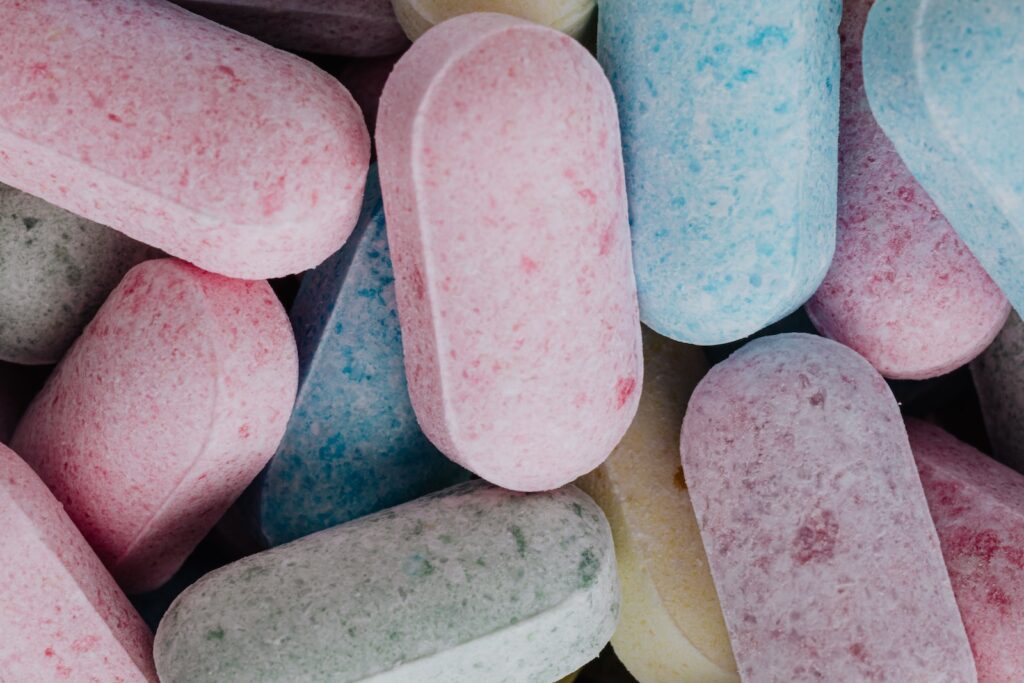How Long After Taking Vitamins Can I Drink Coffee? Recommended Wait Time

In the hustle and bustle of modern life, our morning routines often include a comforting cup of coffee and a handful of vitamins to kickstart the day. The question on many minds is: How long after taking vitamins can I drink coffee? Coffee is a beloved morning ritual for many, offering a much-needed energy boost to kickstart the day.
On the other hand, taking vitamins is essential for maintaining our health and well-being. Many people rely on taking vitamins and minerals to supplement their diet and ensure they are getting all the essential nutrients they need.
However, there is often confusion about whether it is safe to consume coffee after taking these supplements. In this article, we will explore the factors affecting vitamin absorption, the effects of coffee on absorption, the recommended wait time, and tips to optimize absorption.
Understanding Vitamin Absorption
Vitamins are essential organic compounds that our bodies require for various physiological functions. From supporting our immune system to maintaining healthy skin, vitamins play a pivotal role in our overall well-being.
However, the benefits of vitamins can only be realized if they are effectively absorbed by our bodies. Understanding the processes and factors that influence vitamin absorption is crucial for optimizing our health.
Factors Affecting Vitamin Absorption
Several factors can significantly impact the absorption of vitamins in our bodies. Here are some key factors to consider:
1. Fat Solubility vs. Water Solubility: Vitamins are classified into two main groups based on their solubility – fat-soluble (A, D, E, and K) and water-soluble (B-complex vitamins and vitamin C).
Fat-soluble vitamins are better absorbed when consumed with dietary fat, as they dissolve in fat, while water-soluble vitamins are readily absorbed by the body, but excess amounts are excreted in urine.
2. Dietary Sources: The source of vitamins in your diet matters. For example, vitamin D is synthesized in the skin upon exposure to sunlight, while vitamin B12 is primarily found in animal-based foods.
Vegans and vegetarians may need to pay special attention to their diets or consider supplements to ensure they receive adequate vitamins.
3. Age: As we age, our bodies’ ability to absorb certain vitamins may decrease. For instance, older adults may experience reduced absorption of vitamin B12 and vitamin D, leading to deficiencies if not properly addressed.
4. Health Conditions: Certain medical conditions, such as celiac disease or Crohn’s disease, can interfere with the absorption of vitamins and nutrients in the digestive tract. Individuals with these conditions may require specialized diets or supplements.
5. Medications: Some medications can affect the absorption of specific vitamins. For example, proton pump inhibitors (PPIs) used to treat acid reflux can reduce the absorption of vitamin B12.

Effects of Coffee on Vitamin Absorption
Coffee is a beloved beverage worldwide, renowned for its stimulating effects and rich flavor. However, its influence on vitamin absorption has been a topic of interest and concern for many. Here’s what you need to know:
1. Calcium and Magnesium: Coffee contains compounds called tannins that can interfere with the absorption of minerals like calcium and magnesium. If you rely on coffee as your primary source of hydration, you may want to consider other beverages to ensure adequate mineral intake.
2. Iron: Coffee can inhibit the absorption of non-heme iron, the type of iron found in plant-based foods and supplements. If you have iron-deficiency anemia, it’s advisable to avoid drinking coffee immediately before or after meals containing iron-rich foods.
3. B Vitamins: There is some evidence to suggest that excessive coffee consumption may reduce the absorption of certain B vitamins, such as B1 (thiamine) and B9 (folate).
However, moderate coffee consumption is unlikely to have a significant impact on vitamin B absorption for most people.
Balancing Act: Coffee and Vitamins
In conclusion, while coffee can affect the absorption of certain vitamins and minerals, the impact is often modest and may not be a concern for those with a well-rounded diet.
To maximize vitamin absorption, consider dietary choices, individual health factors, and the timing of coffee consumption.
If you have specific concerns about vitamin absorption, consult with a healthcare professional or registered dietitian for personalized guidance and dietary recommendations that suit your unique needs.
Drinking Coffee After Taking Vitamins
For many of us, starting the day with a cup of coffee and a daily vitamin routine has become a habitual ritual. But have you ever wondered whether drinking coffee immediately after taking your vitamins affects their effectiveness?
Recommended Wait Time
The general consensus among health experts is that it’s a good idea to wait for a short period after taking vitamins before indulging in your morning coffee. Here’s what you need to know:
1. Wait 30 Minutes to an Hour: A wait time of around 30 minutes to an hour is often suggested. This brief interval allows your body to absorb essential vitamins and minerals without any potential interference from coffee.
During this period, the nutrients in your vitamins have a better chance of being absorbed and utilized effectively.
2. Water is Preferred: During this waiting period, it’s recommended to hydrate with water instead of coffee. Water doesn’t contain compounds that may potentially hinder nutrient absorption, making it an ideal choice for aiding the body in digesting and absorbing vitamins.

Impact of Coffee on Vitamin Effectiveness
The impact of coffee on vitamin absorption and effectiveness varies depending on the specific vitamins and minerals you’re taking. Here are some key considerations:
1. Iron Absorption: One of the most discussed interactions is between coffee and iron. Coffee contains compounds called polyphenols that can inhibit the absorption of non-heme iron found in plant-based foods and supplements.
If you’re taking an iron supplement or have been diagnosed with iron-deficiency anemia, it’s best to avoid consuming coffee immediately before or after your iron supplement.
2. Calcium and Magnesium: Coffee contains substances like tannins that may reduce the absorption of minerals such as calcium and magnesium.
While the effect is generally not significant for individuals with balanced diets, if you have concerns about your calcium or magnesium intake, consider consuming dairy products or fortified foods at separate times from your coffee.
3. B Vitamins: Some studies suggest that excessive coffee consumption might reduce the absorption of certain B vitamins, such as thiamine (B1) and folate (B9). However, for most individuals who enjoy coffee in moderation, this is not a major concern.
4. Fat-Soluble Vitamins: Fat-soluble vitamins (A, D, E, and K) are better absorbed when consumed with dietary fat. Coffee, being devoid of fat, does not impact the absorption of these vitamins.
Individual Variations: Keep in mind that individual factors such as your overall diet, health conditions, and the specific formulation of your vitamins can influence how coffee interacts with your supplements.
It’s advisable to consult with a healthcare professional or registered dietitian if you have concerns about vitamin absorption or if you’re on a specialized dietary regimen.
Choosing the Right Time to Take Vitamins
Vitamins play a crucial role in maintaining our health and well-being, but their effectiveness can be influenced by various factors, including the timing of consumption. Selecting the right time to take vitamins can maximize their benefits and minimize potential interactions.
Best Time to Take Multivitamins
- With a Meal: Many experts recommend taking multivitamins with a meal, preferably breakfast or lunch. Consuming vitamins with food can help enhance their absorption as the nutrients are better absorbed when there is some fat present in the meal. Plus, taking vitamins with a meal reduces the chances of stomach discomfort that can occur when vitamins are taken on an empty stomach.
- Morning or Early Afternoon: Mornings or early afternoons are often ideal times to take multivitamins. This allows your body to benefit from the nutrients throughout the day when it’s most active and engaged in various metabolic processes.
- Consistency is Key: The timing of vitamin intake can also depend on your daily routine and when you are most likely to remember to take them consistently. Developing a regular vitamin-taking habit can be more important than the specific time of day.
- Avoid Before Bed: It’s generally recommended to avoid taking multivitamins right before bedtime. Some vitamins, particularly B-complex vitamins, can boost energy and potentially disrupt your sleep if taken too late in the day.
Interaction Between Coffee and Specific Vitamins
Coffee is a popular beverage known for its stimulating effects, but it can interact with specific vitamins in various ways:
- Iron: Coffee, especially when consumed in large amounts, contains compounds that can inhibit the absorption of non-heme iron found in plant-based foods and supplements. If you are concerned about iron absorption, consider taking your iron supplement separately from your coffee, or wait 30 minutes to an hour before drinking coffee after taking iron.
- Calcium and Magnesium: Coffee contains substances like tannins that may reduce the absorption of minerals like calcium and magnesium. If you have concerns about your calcium or magnesium intake, try to consume coffee at separate times from your meals rich in these minerals.
- B Vitamins: Excessive coffee consumption may potentially reduce the absorption of certain B vitamins, such as thiamine (B1) and folate (B9). However, for most people who consume coffee in moderation, this is not a significant concern.
- Fat-Soluble Vitamins: Coffee, being fat-free, does not impact the absorption of fat-soluble vitamins (A, D, E, and K). You can take these vitamins with or without coffee.
- Personal Considerations: It’s important to consider individual factors, dietary choices, and any underlying health conditions that may affect how coffee interacts with your specific vitamins. Consulting with a healthcare professional or a registered dietitian can provide personalized guidance based on your unique needs.
Optimizing Vitamin Absorption
Vitamins are essential for our overall health and well-being, but simply taking them is not enough. To truly benefit from these vital nutrients, it’s crucial to optimize their absorption in your body.
Tips for Improving Vitamin Absorption
- Take Vitamins with Food: Many vitamins are fat-soluble, meaning they are better absorbed when consumed with dietary fat. Take your vitamins with a meal that includes healthy fats, such as avocados, nuts, seeds, or olive oil. This enhances the absorption of vitamins like A, D, E, and K.
- Be Mindful of Timing: The timing of vitamin intake can make a difference. Consider taking your vitamins in the morning or early afternoon when your body is most active and engaged in metabolic processes. Avoid taking them right before bedtime, especially if they contain B-complex vitamins that can boost energy.
- Don’t Take Vitamins on an Empty Stomach: Taking vitamins on an empty stomach may lead to stomach discomfort for some individuals. It’s generally recommended to take vitamins with a meal to reduce the risk of gastrointestinal issues.
- Stay Hydrated: Proper hydration is essential for overall health and can aid in the absorption of water-soluble vitamins (such as B-complex vitamins and vitamin C). Drinking enough water ensures that your body functions optimally, helping vitamins dissolve and be transported efficiently.
- Limit Coffee and Tea: Coffee and tea contain compounds like tannins and polyphenols that can interfere with the absorption of minerals like iron and calcium. If you consume these beverages, consider waiting at least 30 minutes to an hour after taking vitamins before drinking coffee or tea.
- Consult a Healthcare Professional: If you have specific health conditions or dietary restrictions that may affect vitamin absorption, consult with a healthcare professional or a registered dietitian. They can provide personalized guidance and recommend suitable supplements or dietary adjustments.
Alternative Beverages for Taking Vitamins
If you prefer to avoid coffee or tea when taking vitamins or simply want alternative options, there are several beverages that can enhance vitamin absorption:
- Water: Plain water is always a reliable choice. It won’t interfere with vitamin absorption and helps ensure that your body is properly hydrated.
- Fruit Juice: Certain fruit juices, like orange or grapefruit juice, can be good options for taking vitamins. They provide added flavor and contain vitamin C, which can enhance the absorption of iron from plant-based sources.
- Smoothies: Blending your vitamins into a smoothie with fruits, vegetables, and yogurt or milk can be a delicious way to take your supplements. This approach also provides some healthy fats and additional nutrients.
- Milk or Dairy Alternatives: If you’re taking vitamins that are better absorbed with calcium, such as vitamin D, consider taking them with milk or fortified dairy alternatives like almond milk or soy milk.
- Herbal Tea: Herbal teas like chamomile or peppermint tea are caffeine-free and won’t interfere with vitamin absorption. They can be a soothing choice for taking your supplements.
Frequently Asked Questions About How long after taking vitamins can I drink coffee?
Can I drink coffee after drinking vitamins?
Consuming coffee after vitamins is not recommended due to tannins and caffeine’s effects on nutrient absorption. Wait 15 minutes or more before taking vitamins, and take them at different times with Vitamin C-rich juice.
What vitamins should not be taken with coffee?
It’s not recommended to mix vitamins with coffee due to potential interference with absorption. Separate intake and wait at least an hour after coffee consumption for optimal absorption.
How long should you wait to drink after taking vitamins?
Drinking coffee 15 minutes after taking vitamins is advised due to potential interference from tannins and caffeine. Multivitamins with caffeine can slow digestion and decrease water-soluble vitamins. Take vitamins at different times for optimal benefits.
How long can I drink coffee after taking medicine?
Caffeine-affected medications should be taken one hour after coffee consumption to process caffeine, with waiting times varying depending on the medication type. Consult a healthcare professional for personalized advice.
Does coffee remove vitamins?
Research suggests that caffeine’s diuretic effects and stimulatory properties may deplete B vitamins and vitamin C levels, so it’s advised to avoid water-soluble nutrients and consume vitamin C separately.
Does coffee react with vitamin C?
Caffeine’s diuretic effects and stimulatory properties may deplete B vitamins and vitamin C levels, so research advises avoiding water-soluble nutrients with caffeine and consuming vitamin C separately.

Conclusion
In conclusion, there is a recommended wait time before drinking coffee after taking vitamins to ensure optimal absorption.
Experts generally suggest waiting at least 30 minutes to an hour to allow the body to absorb the essential nutrients without interference.
It is important to consider the impact of coffee on vitamin effectiveness and potential interactions with specific vitamins.
By following these guidelines and optimizing absorption, you can ensure that you are getting the most out of your daily vitamin regimen.



